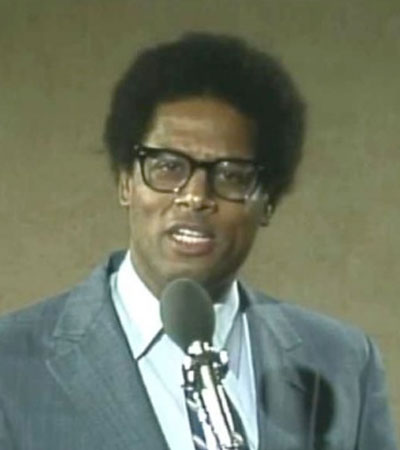
Biography
Thomas Sowell is the Rose and Milton Friedman Senior Fellow at Stanford’s Hoover Institution. Although trained as an economist, he has written on a wide range of subjects. The author of forty-nine books and a syndicated newspaper column, he was awarded the National Humanities Medal in 2002.
Born into a family of black sharecroppers in North Carolina in 1930, Sowell grew up in Harlem and attended (but did not graduate from) New York’s elite Stuyvesant High School. After working at an assortment of menial positions, Sowell was inducted into the Marine Corps and became a service photographer. He then studied briefly at Washington’s Howard University. From there he transferred to Harvard, eventually graduating magna cum laude at the age of 28. Sowell was the first member of his household to proceed past the sixth grade.
Sowell received a master’s degree at Columbia and later a doctorate in economics from the University of Chicago in 1968.
Sowell was a Marxist for much of his youth and wrote his college thesis on Marx’s Das Kapital. He has attributed the beginning of his shift toward classical economics to an experience in 1960 serving as a summer intern in the federal Department of Commerce. During this time, Sowell saw how increases in the minimum wage were producing rising rates of unemployment in Puerto Rico and driving the eventual move of the sugar industry away from the island.
One special characteristic of Sowell’s work, displayed even when he is writing for almost exclusively scholarly audiences, has been his plain language and readable style. He is also known for his dislike of self-promotion.
Before joining the Hoover Institution, Sowell taught at Cornell University, Rutgers University, Amherst College, Brandeis University, and the University of California, Los Angeles.
Sowell is an advocate of classical liberal economics, a student of the problems that arise from the sustained growth of government, a critic of affirmative action, an expert on the history of the complex social patterns of different racial, religious, and ethnic groups, and a student of the attitudes that motivate intellectuals’ political beliefs.
